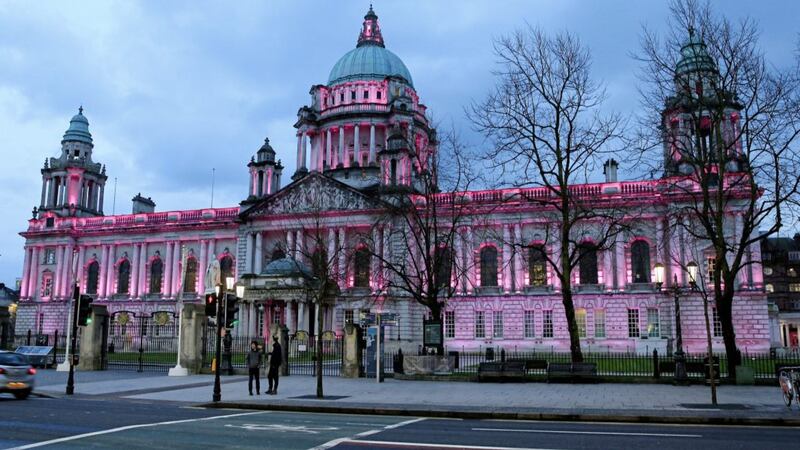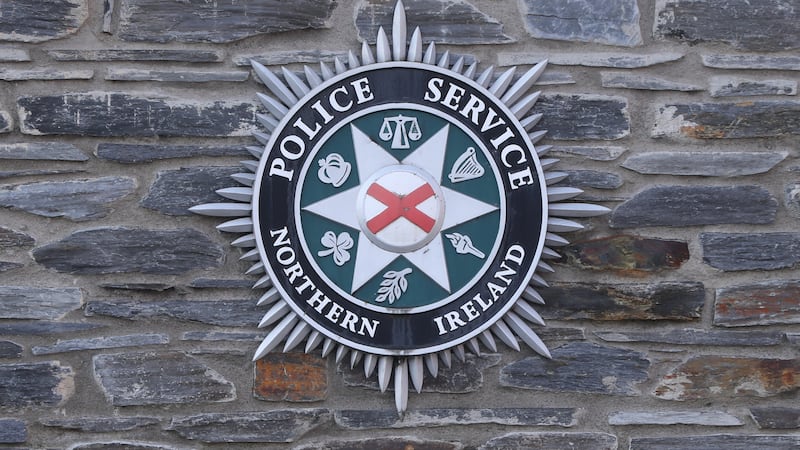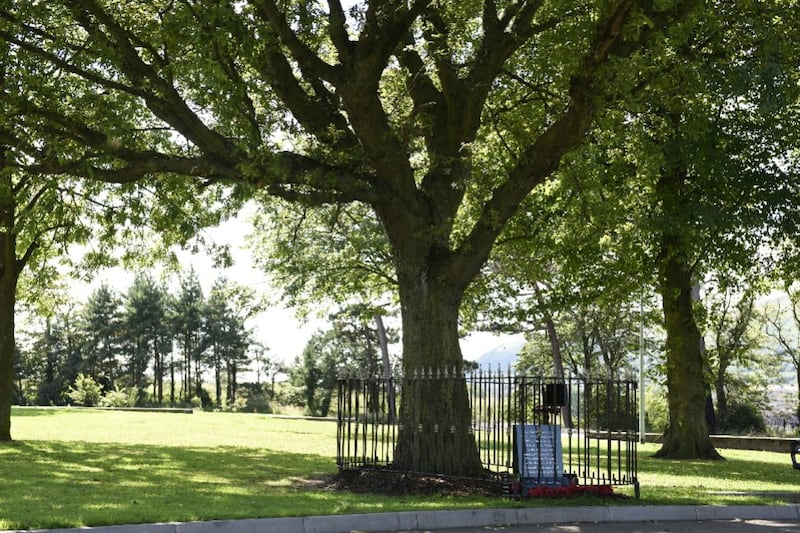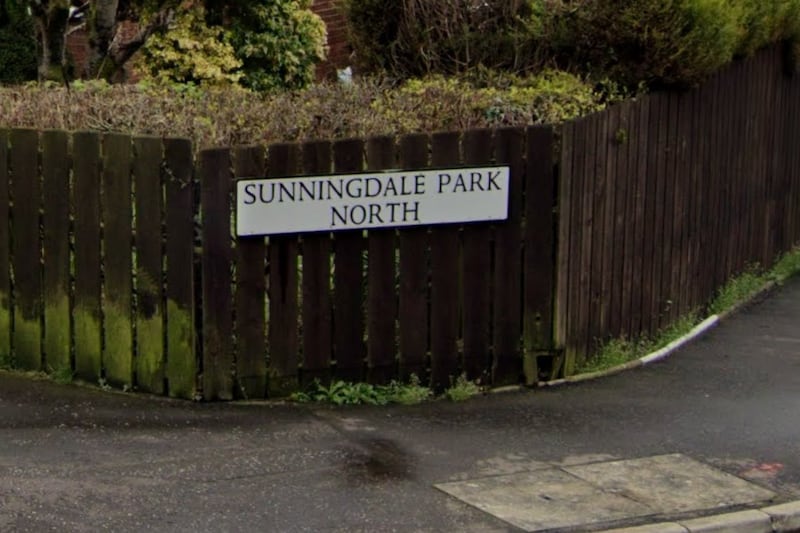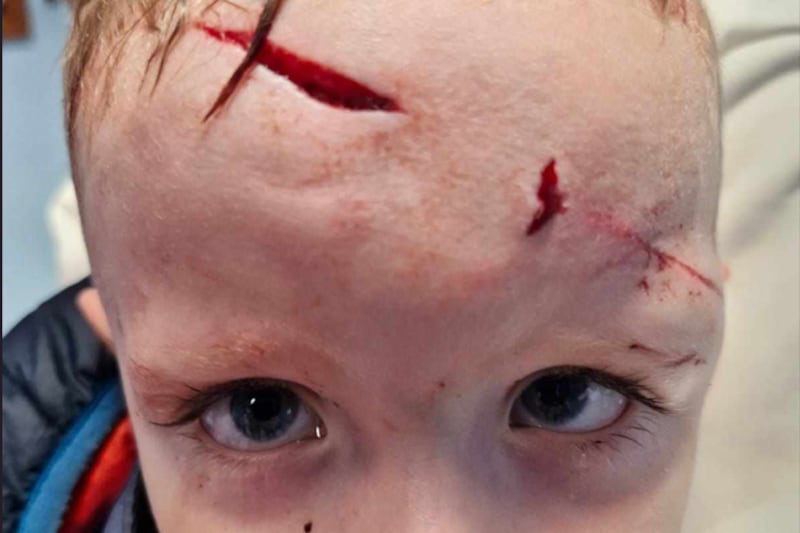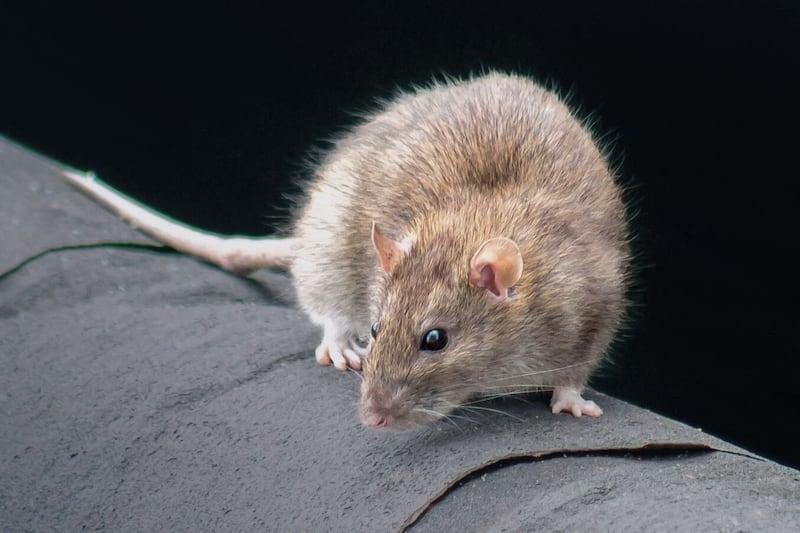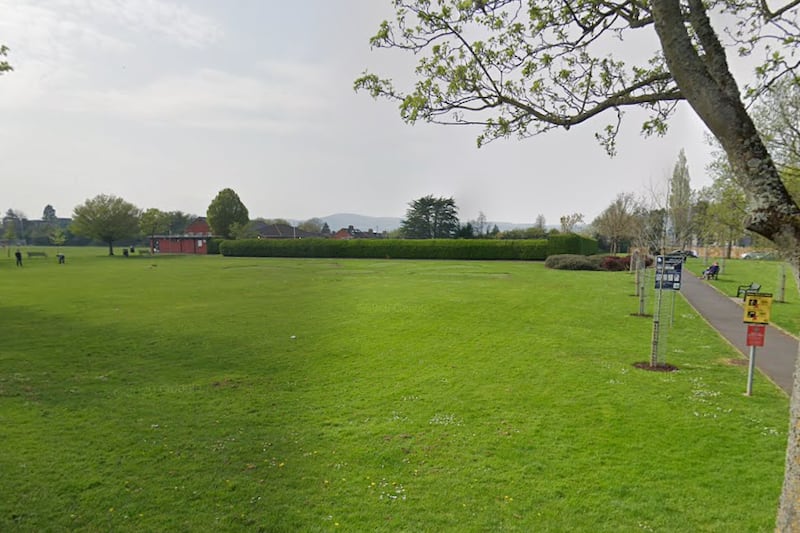THE largest of the councils, Belfast is also unique among Northern Ireland's 11 local authorities because it has neither a nationalist nor unionist majority.
With both blocks unable to command overall control, the balance of power usually rests with Alliance and a handful of others in the middle on the constitutional question.
Alternatively, it necessitates Sinn Féin and the DUP as city hall's largest parties to work together on occasion and broker deals between themselves – which may sound surprising to observers of the continued deadlock at Stormont.
This broad composition is unlikely to change as a result of May's election. Instead, the main change will come within the separate battles of unionism and nationalism.
Sixty seats are being contested across 10 district electoral areas for Belfast City Council in this election – the second since local government reform merged the 26 former councils across the north into 11 'supercouncils'.
In 2014, Sinn Féin continued its place as the largest party with 19 seats, followed by the DUP with 13, Alliance with eight, and the SDLP and UUP each with seven.
However, at a time when all five were relatively settled into Stormont's power-sharing executive, all except the Ulster Unionists sustained a drop in their vote share compared to 2011's poll.
This was to the benefit of smaller parties, with the PUP increasing its representation from two councillors to three, and TUV, the Green Party and People Before Profit each gaining their first seat on the council.
But 2019's election comes at a time when Westminster is obsessed with Brexit and the Northern Ireland Executive has not operated since 2017 in the wake of the RHI scandal.
Amid this political climate, Sinn Féin and the DUP are expected to gain seats at the expense of their rivals.
Read more:
- Fianna Fáil could dip toe in Causeway Coast and Glens battle
- Unionist stronghold under threat in Antrim and Newtownabbey
- Mid and East Antrim Constituency Notebook
Sinn Féin is running the most candidates with 25 in the race. With its 21 candidates, the DUP is expected to pick up seats from the smaller unionist parties as well as independent unionists who left their party folds.
The SDLP had seven councillors elected in 2014, but three quit the party in 2017 in a row over an abortion vote – and are now standing as independents. This could split the party's vote, putting further pressure on retaining the seat count it currently has.
Key battles include Castle, which has several high-profile candidates including several former mayors and deputy mayors.
Among them are former Sinn Féin Westminster candidate John Finucane, who joins Mary Ellen Campbell as the party hopes to gain an extra seat, and ex-UUP MLA Fred Cobain joining Guy Spence on the DUP ticket in a bid to retain two seats.
Another interesting contest will be Black Mountain, where MLA Gerry Carroll made a breakthrough for People Before Profit in 2014. Matt Collins will be defending the seat this time round, while Sinn Féin is hoping to manage its vote to increase its seat count from five to six.
With Stormont mothballed for the foreseeable future, councils seats are arguably more important than before.
But while the 2016 EU referendum and 2017's Stormont and Westminister elections delivered big turnouts, council elections tend to receive less voter interest.
Compounding this is how May's poll will be the first local government election since 1997 not to be held on the same day as another vote.
Northern Ireland's last council election had a turnout of 51.33 per cent.
How will Belfast voters respond to the Stormont malaise and the all-consuming Brexit dilemma? With the last seat in most electoral areas expected to be tightly fought, voter turnout will be an important factor in the final result.
--------------------
:: Party share 2014
SF 29.2%
DUP 19.0%
Alliance 11.4%
SDLP 10.0%
UUP 9.0%
PUP 6.5%
TUV 2.6%
Green 2.3%
PBP 1.6%
Others 8.4%
--------------------
:: Candidates
Balmoral (five seats):
Sarah Bunting (DUP)
Jeff Dudgeon (UUP)
David Graham (DUP)
Dónal Lyons (SDLP)
Geraldine McAteer (SF)
Padraigin Mervyn (PBP)
Micheal Mulhern (SDLP)
Kate Nicholl (All)
Caoimhe O'Connell (Green)
William Traynor (Ukip)
Black Mountain (seven seats):
Ciaran Beattie (SF)
Conor Campbell (Workers' Party)
Arder Carson (SF)
Matt Collins (PBP)
Steven Corr (SF)
Paul Doherty (SDLP)
Micheal Donnelly (SF)
Eoin Geraghty (Aontú)
Emma Groves (SF)
Stevie Maginn (Green)
Ronan McLaughlin (SF)
Liam Norris (All)
Botanic (five seats):
Declan Boyle (Ind)
Graham Craig (DUP)
Billy Dixon (S.Belfast Unionists)
Aine Groogan (Green)
Deirdre Hargey (SF)
John Hiddleston (TUV)
Tracy Kelly (DUP)
Richard Kennedy (UUP)
Paul Loughran (PBP)
Paddy Lynn (Workers' Party)
Caitríona Mallaghan (SF)
Emmet McDonough-Brown (All)
Gary McKeown (SDLP)
Micky Murray (All)
Ian Shanks (PUP)
Castle (six seats):
David Browne (UUP)
Mary Ellen Campbell (SF)
Fred Cobain (DUP)
Patrick Convery (Ind)
John Finucane (SF)
Riley Johnston (PBP)
Nuala McAllister (All)
Cathal Mullaghan (Ind)
Mal O'Hara (Green)
Guy Spence (DUP)
Gemma Weir (Workers' Party)
Carl Whyte (SDLP)
Heather Wilson (SDLP)
Collin (six seats):
Danny Baker (SF)
Micheal Collins (PBP)
Paddy Crossan (Workers' Party)
Matt Garrett (SF)
Brian Heading (SDLP)
Donnamarie Higgins (All)
Stephen Magennis (SF)
Nicola McLean (Aontú)
David McKee (DUP)
Ellen Murray (Green)
Charlene O'Hara (SF)
Fred Rodgers (UUP)
Seanna Walsh (SF)
Court (six seats):
Dave Anderson (UUP)
Tina Black (SF)
Jolene Bunting (Ind)
Ciara Campbell (All)
Claire Canavan (SF)
Tiernan Fitzlarkin (SDLP)
Billy Hutchinson (PUP)
Brian Kingston (DUP)
Joanne Lowry (Workers' Party)
Sinéad Magner (Green)
Cailín McCaffery (PBP)
Frank McCoubrey (DUP)
Eric Smyth (TUV)
Nicola Verner (DUP)
Lisnasharragh (six seats):
Ivanka Antova (PBP)
David Brooks (DUP)
Séamas de Faoite (SDLP)
Amy Ferguson (Labour Alternative)
Gwen Ferguson (PUP)
Aileen Graham (DUP)
Eric Hanvey (All)
Stevie Jenkins (SF)
Michael Long (All)
Ben Manton (UUP)
Catherine McComb (Ukip)
Chris McGimpsey (UUP)
Kate Mullan (Ind)
Tommy Sandford (DUP)
Brian Smyth (Green)
Oldpark (six seats):
Jack Armstrong (All)
Chris Bailie (Workers' Party)
Shauneen Baker (SF)
Mary Clarke (SF)
Julie-Anne Corr-Johnston (PUP)
Jason Docherty (UUP)
Fiona Ferguson (PBP)
JJ Magee (SF)
Paul McCusker (SDLP)
Ryan Murphy (SF)
Dale Pankhurst (DUP)
Gillian Simpson (DUP)
Lesley Veronica (Green)
Ormiston (seven seats):
William Ennis (PUP)
Anthony Flynn (Green)
Tom Haire (DUP)
John Hussey (DUP)
Peter Johnston (UUP)
Keith Lonsdale (Ukip)
Ross McMullan (All)
Peter McReynolds (All)
Laura Misteil (SF)
Sian O'Neill (All)
Jim Rodgers (UUP)
Gareth Spratt (DUP)
Titanic (six seats):
Karl Bennett (Ind)
Sonia Copeland (UUP)
George Dorrian (DUP)
Paul Girvan (Ukip)
Colin Hall-Thompson (UUP)
Carole Howard (All)
Michelle Kelly (All)
John Kyle (PUP)
Adam Newton (DUP)
Mairead O'Donnell (SF)
Lee Reynolds (DUP)
Ben Smylie (Green)
Read more:
- Fianna Fáil could dip toe in Causeway Coast and Glens battle
- Unionist stronghold under threat in Antrim and Newtownabbey
- Mid and East Antrim Constituency Notebook
